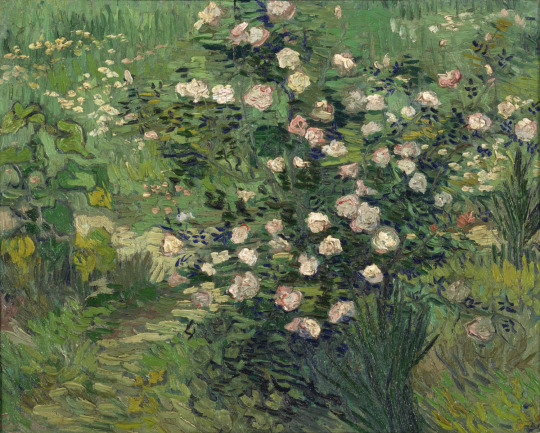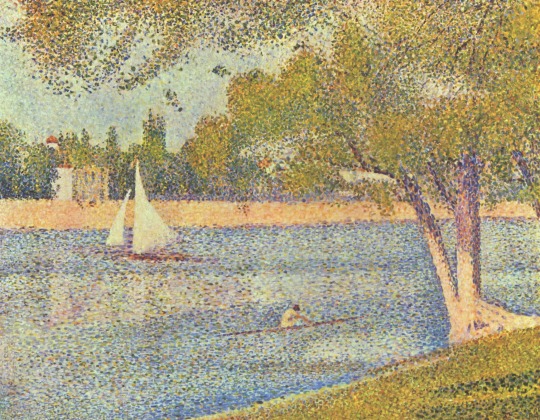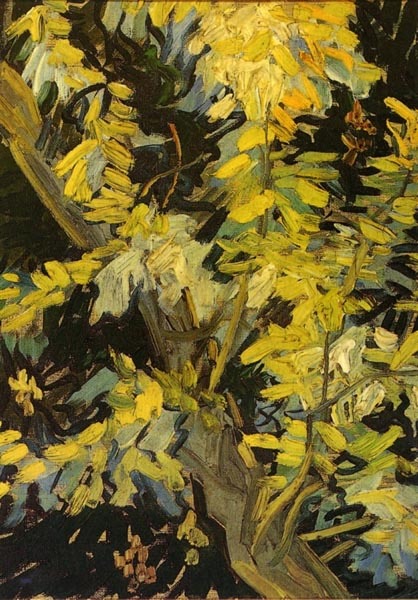#Neo Impressionism
Explore tagged Tumblr posts
Text
I'm thinking about Stanley's sketchbook again, and can you IMAGINE how art movements at the time could have affected his art??? I'm not exactly an art history expert but from what I remember, Pop Art was only just going out of style during the 1970-somethings, when people started to look more towards Neo-Impressionism late 1970- early 1980s, and good LORD that was a whole thing /pos
Idk how he would have even seen the art movement?? I'm not sure how art was distributed to the public back then, especially from the point of view of homeless people. Could they have been displayed on storefront windows or newspapers, or were they a NYC SoHo art scene exclusive thing? Idk!! But the thought of Stan experimenting with his style is gnawing at my brain!!!!
#my post#sput chatters#gravity falls#stan pines#stanley pines#art movements#1970#1980#pop art#neo impressionism#stanley's sketchbook
375 notes
·
View notes
Text

Dan McCaw Landscape Within, 2022 Oil on canvas.
#dan mccaw#danny mccaw#oil painting#art#contemporary art#contemporary painting#neo impressionism#oil on canvas#painting#figurative painting#figurative art
354 notes
·
View notes
Text

Portrait of a lady Giovanni Maria Rastellini
67 notes
·
View notes
Text

Pine by the Mediterranean Sea, 1916
Artist: Théo van Rysselberghe
#reddit#museum#aethelwulf888#1916#pine by the mediterranean sea#theo van rysselberghe#art#artist#neo impressionism#painter#painting
40 notes
·
View notes
Text

Roses, Vincent Van Gogh, 1889
#roses#Vincent van gogh#van gogh#1889#1880s#1800s#19th century#painting#art#impressionism#neo impressionism
421 notes
·
View notes
Text
Just a reminder that the “tortured artist” trope is a myth. Vincent Van Gogh’s most famous and beloved works are not bleak and depressing; they’re filled with hope, and reverence for the beauty of the world around him. He was not a great artist because of his pain, he was a great artist because of his hope, in spite of his pain.
#art#classical art#classic art#19th century art#van gogh#vincent van gogh#post impressionism#post impressionist art#post impressionist#impressionism#impressionist art#impressionism art#modern art#hopecore#hope#corecore#mental health#positivity#positive affirmations#positive thoughts#neo impressionism#expressionism#expressionist art#healing#life is beautiful#optimism
49 notes
·
View notes
Text

Vincent Van Gogh Dutch 1853 - 1890 Self-Portrait, 1887, Oil on artist's board, mounted on crafted paper.
The intense colors and energetic brushwork of this self-portrait may hint at the artist's turbulent inner life. Vincent van Gogh suffered from bouts of depression and anxiety and came to painting after struggling to find professional footing as a pastor, teacher, and art dealer. In selecting the palette for this work, he followed Neo-Impressionist color theory which held that color opposites such as blue and yellow or read and green create a vibrating optical effect when laid down next to each other. Gut what for other artists was a method based on the cool objectivity of science became in Van Gogh's hands and emotional language. Here the blue-green of the background sets off the orange red of the artist hair and beard bringing focus to his arresting expression.
On display at the Art Institute of Chicago
21 notes
·
View notes
Text

Moulin d'Edam, Paul Signac, 1896
Oil on canvas 25 ⅝ x 32 ⅛ in. (65.2 x 81.4 cm)
#art#painting#paul signac#impressionism#neo impressionism#pointillism#19th century art#1890s#19th century#french#oil#netherlands
63 notes
·
View notes
Text

#Théo Van Rysselberghe#20th century#19th century#belgian#painter#impressionism#oil painting#artists on tumblr#painting#art#woman#flowers#belgium#neo impressionism#oil on canvas
20 notes
·
View notes
Text

Vincent Van Gogh, L’église d’Auvers-sur-Oise, 1890, Musée d’Orsay.
23 notes
·
View notes
Text

The Black Bow, George Seurat 1882
14 notes
·
View notes
Text

Dan McCaw Untitled, 2023 Oil on board.
#dan mccaw#danny mccaw#art#neo impressionism#contemporary art#painting#oil painting#oil on board#figurative art#figurative painting#contemporary painting
60 notes
·
View notes
Text

Feuerwerk auf der Engelsburg in Rom, ca. 1775
(Fireworks over Castel Sant'Angelo in Rome)
Artist: Jacob Philipp Hackert
#artist#museum#reddit#aethelwulf888#1775#painter#art#jacob philipp hackert#painting#feuerwerk auf der engelsburg in rom#fireworks over castel sant'angelo in rome#neo impressionism
11 notes
·
View notes
Text

Springtime—Georges Seurat
12 notes
·
View notes
Text

Vincent van Gogh, Blossoming Acacia Branches, 1890
#vincent van gogh#dutch artist#dutch painter#acacia#floral art#floral painting#floral#flowers#beautiful flowers#flower art#post impressionist art#post impressionism#neo impressionism#art on tumblr#modern art#art history#aesthetictumblr#tumblraesthetic#tumblrpic#tumblrpictures#tumblr art#aesthetic#beauty
86 notes
·
View notes
Text

"Let's shake on it."
#metamorphicmuse#dall e#ai image#ai male#handsome male#gay art#ai art#masculine#vintage#neo impressionism#diner#gay men#gay romance#male bonding
11 notes
·
View notes